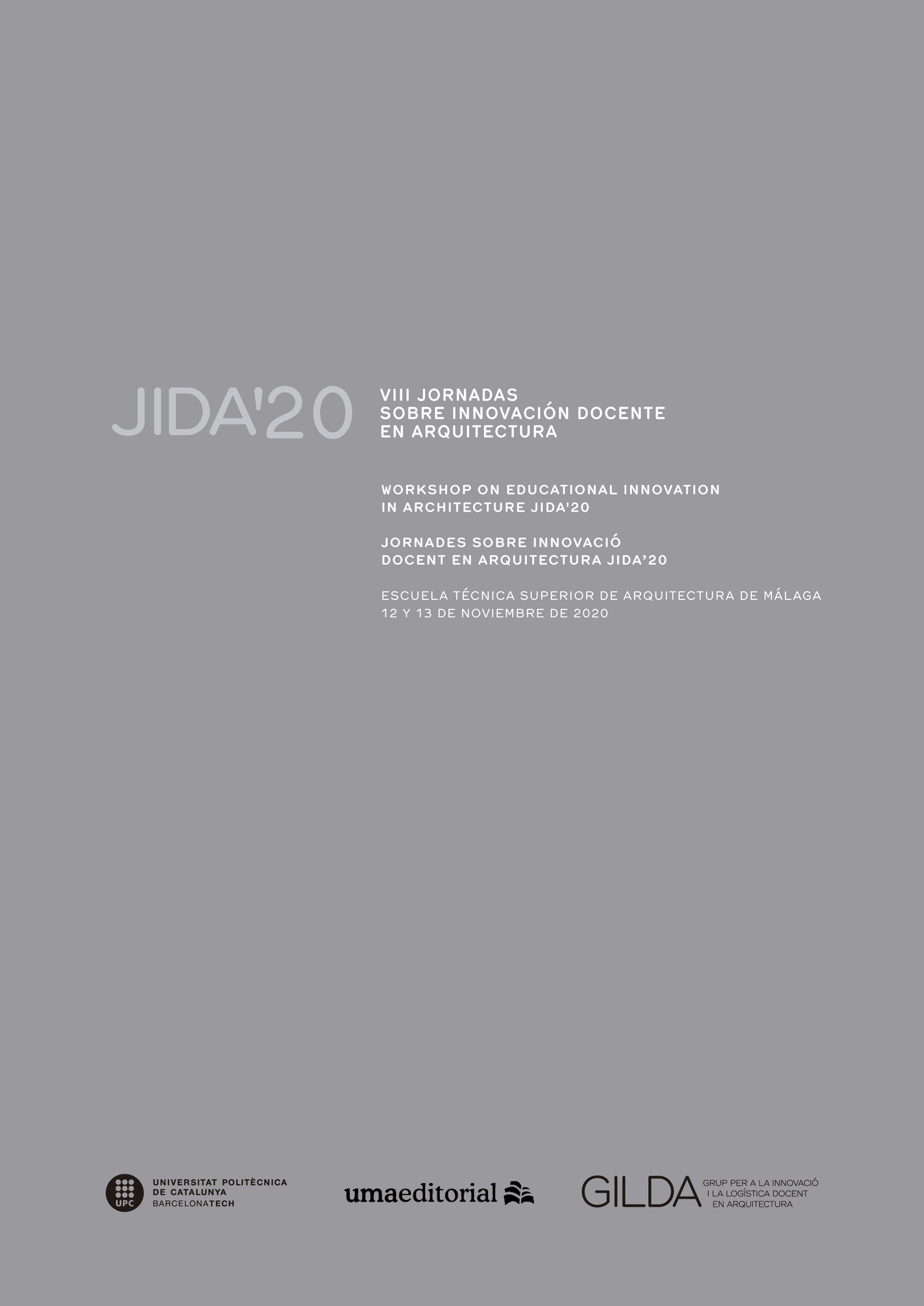La precisión en la elección y desarrollo de los trabajos fin de máster para una inserción laboral efectiva
DOI:
https://doi.org/10.5821/jida.2020.9348Resumen
La decisión de cursar un máster de especialización en arquitectura está marcado por la empleabilidad, ansiada por los estudiantes y por que se garantice por parte de las universidades. Las acciones que éstas articulan para su logro no cuentan en la etapa formativa con el potencial que supone que el Trabajo Fin de Máster (TFM) ya incorpore una capacidad real de transferencia que conlleve empleo asociado a la especificidad del egresado, en temática y habilidades. El máster Universitario en Ciudad y Arquitectura Sostenibles de la ETS Arquitectura de Sevilla ha creado un protocolo de innovación docente para la empleabilidad. Sus resultados, a pesar de ser aun un procedimiento novel, muestran su potencialidad, a combinar con las habituales, como prácticas de empresa, mentorización, emprendedurismo, etc. El perfil del arquitecto, hoy, tan desajustado en la sociedad, tiene en esta directriz en el seno de los TFMs, una posibilidad de afinar el papel que desempeña en ella.
Citas
BAUMAN, Z. (2001). La posmodernidad y sus descontentos. Madrid: Ediciones Akal. Cuestiones de antagonismo.
COLL, J. (2015). "¿Qué deberÃamos enseñar? Reflexión en torno al Máster Habilitante en Arquitectura", en BardÃ, B. y GarcÃa-Escudero, D. (eds.). III Jornadas sobre Innovación Docente en Arquitectura (JIDA'15). Barcelona: Iniciativa Digital Politècnica Oficina de Publicacions Acadèmiques Digitals de la UPC, pp. 324-335.
CONGRESO DE LOS DIPUTADOS (2020). Cortes Generales. Diario de Sesiones del Congreso de los Diputados. 21/02/2020. Madrid: Congreso de los Diputados, p. 39.
DEAMER, P (2015). "Work", en P. Deamer (ed.) The architect as worker: immaterial labor, the creative class, and the politics of design. London, New York: Bloomsbury Academic, pp. 61-81.
ECHARTE, J.M. (2019). "Dimensión económica y laboral en la formación de los arquitectos españoles" en ZARCH, no. 12, pp. 52-67.
<https://doi.org/10.26754/ojs_zarch/zarch.2019123542> [Consulta: 15 de septiembre de 2020]
GERBER, A. (2015). "Independent or bureaucratic? The early career choice of an architect at the turn of the Twentieth century in Germany, France and England" en Footprint, vol. 2015, no. 17, pp. 47-68. https://doi.org/10.7480/footprint.9.2.860 [Consulta: 15 de septiembre de 2020]
KIRZNER, I. (1992). The Meaning of Market Process. London: Routledge.
MINISTERIO DE UNIVERSIDADES (2020). Datos y Cifras del Sistema Universitario Español (Publicación 2019-2020). Madrid: Ministerio de Universidades, pp. 128-135.
https://www.ciencia.gob.es/stfls/MICINN/Universidades/Ficheros/Estadisticas/Informe_Datos_Cifras_Sistema_Universitario_Espanol_2019-2020.pdf [Consulta: 15 de septiembre de 2020]
ORGANIZACIÓN PARA LA COOPERACIÓN Y EL DESARROLLO ECONÓMICOS (2020). EstadÃstica de la Educación de OCDE 2020. Madrid: OCDE.
https://www.educacionyfp.gob.es/servicios-al-ciudadano/estadisticas/internacional/ocde.html [Consulta: 15 de septiembre de 2020]
O’HIGGINS, N. y PINEDO, L. (2018). Interns and outcomes: Just how effective are internships as a bridge to stable employment?. Ginebra: International Labour Office (Employment Policy Department). Employment working paper, 241.
https://www.ilo.org/employment/Whatwedo/Publications/working-papers/WCMS_637362/lang--en/index.htm [Consulta: 17 septiembre 2020]
SANITER, N. y SIEDLER, T. (2014). Door Opener or Waste of Time? The Effects of Student Internships on Labor Market Outcomes. IZA Discussion Papers, no. 8141. Bonn: Institute for the Study of Labor.
SAUQUET, R.J. y SERRA, M. (2018). "El Máster ‘habilitante’ en arquitectura, una oportunidad para un aprendizaje experiencial" en B.Bardà y D. GarcÃa-Escudero (eds.) VI Jornadas sobre Innovación Docente en Arquitectura (JIDA'18). Zaragoza: Universitat Politècnica de Catalunya. Iniciativa Digital Politècnica Grup per a la Innovació i la LogÃstica Docent en l'Arquitectura (GILDA) y Servicio de Publicaciones de la Universidad de Zaragoza, pp. 562-573.
https://upcommons.upc.edu/handle/2117/124508 [Consulta: 15 de septiembre de 2020]
VALVERDE, A, RUIZ DE MIGUEL, C, GARCÃA JIMÉNEZ, E. y ROMERO RODRÃGUEZ, S. (2004). "La Innovación en la orientación Universitaria: la mentorÃa como respuesta" en Contextos Educativos. Revista de Educación, vol. 0, no. 6, pp. 87-87.






















